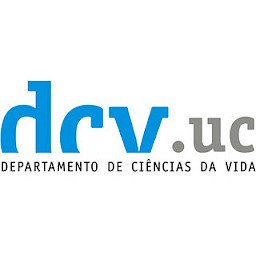Course presentation video
This content is loaded from a third-party and is not available because your browser has cookies disabled.
Here's what you can do:
Presentation
This master's degree focuses on the impact that contemporary dynamics such as digitization, urbanization, environmental and climate transformations have on the relationships between people, communities or different populations (human and non-human) whether on a local or planetary scale.
The master's degree privileges inter/disciplinary dialogues between natural and social sciences and humanities, as well as creative works that go beyond academia and aim at individual and societal transformation.
Based at the DCV, the master's has professors from different areas of knowledge - social and natural sciences - who work in various geographical areas - Portugal, Africa, Asia and Antarctica, among others.
Study Programme
1st YEAR - 1st Semester
| COURSE UNIT TITLE | TYPE | SUBJECT AREA | ECTS |
| Science, history and politics of climate change | Compulsory | Interdisciplinary | 6 |
| Development, sustainability and environmental challenges | Compulsory | Social & Cultural Anthr. | 6 |
| Ethnography, epistemology and cosmovisions | Compulsory | Social & Cultural Anthr. | 6 |
| Technology, Power and Culture | Compulsory | Social & Cultural Anthr. | 6 |
| Global Ethics | Compulsory | Interdisciplinary | 6 |
1st YEAR - 2nd Semester
| COURSE UNIT TITLE | TYPE | SUBJECT AREA | ECTS |
| Food, Health and Social Inequalities | Compulsory | Interdisciplinary | 6 |
| Anthropology, Global Health and Environment(s) | Compulsory | Social & Cultural Anthr. | 6 |
| Anthropology, post-humanity and hyperobjects | Compulsory | Social & Cultural Anthr. | 6 |
| Research methods | Compulsory | Social & Cultural Anthr. | 6 |
| Seminar | Compulsory | Interdisciplinary | 6 |
2nd YEAR
| COURSE UNIT TITLE | REGIME | TYPE | SUBJECT AREA | ECTS |
| Project | 1º Semester | Compulsory | Anthropology | 6 |
| Scientific Dissertation | Annual | Elective | Anthropology | 54 |
| Internship | Annual | Elective | Anthropology | 54 |
| The student must make 60 credits annually. |
| The optional curricular units are offered annually depending on the availability of the Organic Unit. |
General information
- Course name: Master degree in Anthropology, Globalization and Climate Change
- Course type: 2nd Cycle Studies - Advanced Specialisation Master Programme
- Qualification awarded: Master
- Course coordinator: Prof. Jorge Varanda (jorge.varanda@uc.pt)
- Mobility coordinator: Prof. Gonçalo Duro dos Santos (gsantos@uc.pt)
- Objectives of the course: The scientific community is unanimous in the assertion that the impact of climate change puts Life on Earth at risk. Anthropology is the key discipline to better understand and advance innovative solutions because it has historically considered the human(s)-environment(s) relationship in disparate contexts scattered throughout the globe while favoring holistic and interdisciplinary approaches.The master's degree "Anthropology, Globalization and Climate Change" aims at studying the global future(s) of human(s) and non-human(s). It offers advanced training, leading to critical thinking regarding the close relationship between global socio-economic-political transformations and climate change. Based in the Life Sciences Department (DCV) of the University of Coimbra favors innovative reflections on multi-species and human/natural relationships. The master's degree will grant future specialists with analytical and methodological tools that will allow them to propose innovative development strategies leading to inclusive and fair societies while contributing to the safeguarding of biodiversity and the sustainability of ecosystems
- Duration: 4 semesters
- ECTS credits: 120
- Professional goals: The Masters provides scientific training that allows students to provide services in various entities at national and international level. In the national field: Senior technicians in National State bodies; Senior Technicians in municipal councils or other regional State bodies; Senior technicians in companies with areas of environmental and social responsibility; Higher Education Institutions and/or Laboratories and/or Research Centers for the pursuit of training or research. National and international experts on topics related to the environment, health and urbanization, culture, heritage or religiosity; Technicians or Experts in Civil Society Organizations (Foundations or Non-Governmental Organizations). Internationally: Civil Society Organizations (Foundations or Non-Governmental Organizations), International Agencies, International Research Centers
- Numerus clausus: 20
- Tuition fee: National student: 1.100€ / International student: 7.000€
- Admission requirements: Holders of a Bachelor's degree or legal equivalent in Anthropology or other courses in Social Sciences, Arts and Humanities, or in the area of health and Social protection, Law, Economic Sciences, or other courses in Biological Sciences or Ecology all of which can apply.
- More information: UC website
Other information
Dissertations presented
This Master came into operation in the academic year 2021/2022, so no dissertations have yet been submitted.

